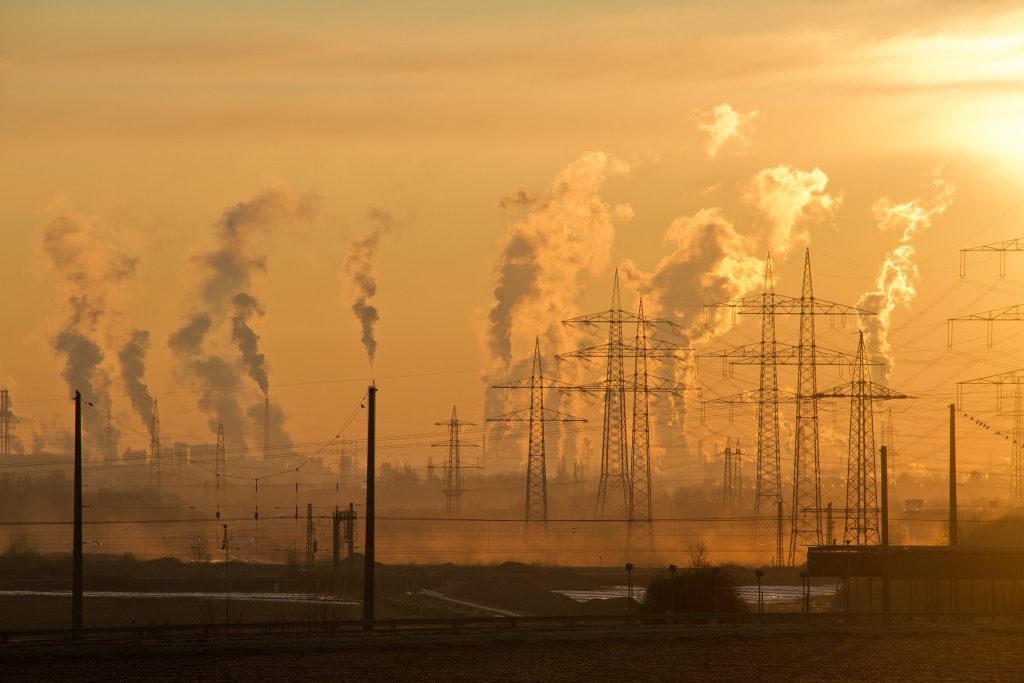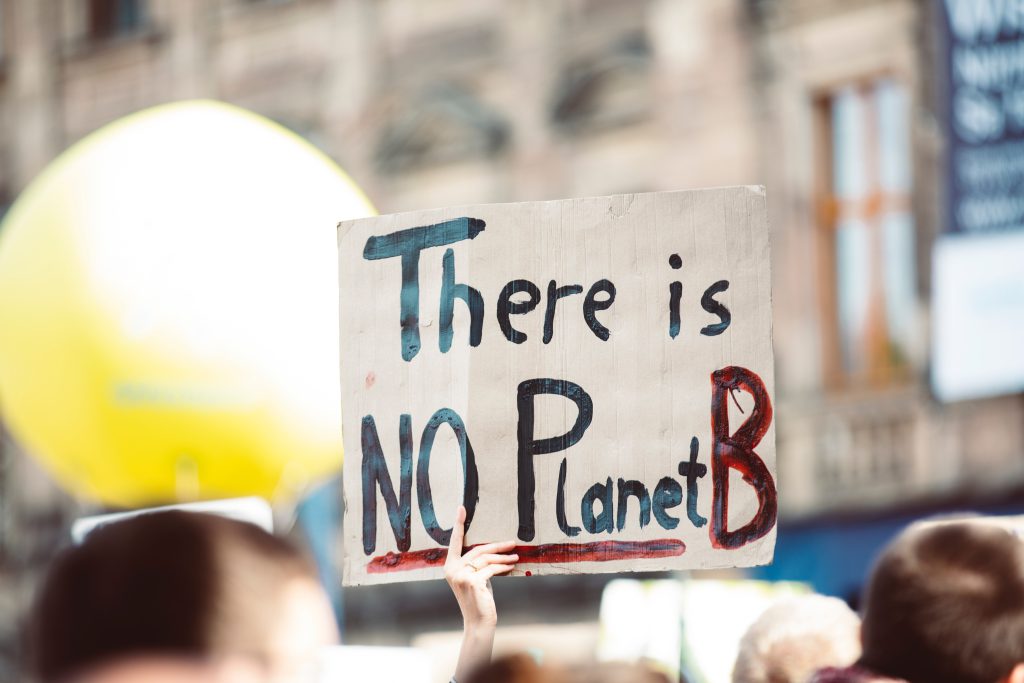With raging wildfires burning down acres of forests and powerful hurricanes leaving hundreds dead, our planet and our population have faced severe destruction. The dire reality of climate change often brings out our primal fears of loss and despair which leaves us with no choice but to accept a dark prophecy. However, we can learn to properly grapple with this reality by accepting the spiritual practices of ancient Buddhist teachings. There is a common misconception that spirituality is counteractive to taking direct social, scientific, or political action. However, spiritual practices are truly complementary to the disciplines of education and activism. Adjusting our lives according to the fundamental practices of spirituality can help us escape our fears and transform our desperation into sustainable activism through ethics, emotions, wisdom, and community.

Climate change is most seen as an ecological, social, or economic issue. However, it is important to recognize that this is a huge ethical issue when we think about the level of human contribution. Our values as a civilization have hugely shaped our actions over the past few decades, so it’s time that we re-align ourselves to different values to bring about positive change. If we apply our desire for justice to the case between ‘the Human Population v. the Planet’ we could see just how much action we must take to restore justice to the planet. In Buddhism, the concept of ‘sila’ is fundamental training for monks. Sila is a code of ethics centered around non-violence (Virtue, 2005). The Buddha states that ethical actions are those that do no harm, are committed to gentleness, and simplicity. It is crucial that we extend this relationship of sila to the way we interact with nature, animals, and our natural resources (Virtue, 2005). When we create our relationship to the earth in alignment with our values, we will truly stay committed to our mission out of sincerity rather than out of obligation.
Seeing the mass destruction caused by global warming has certainly stirred feelings of immense grief and fear within many of us. Seeing these issues met with general global apathy or ignorance even incites anger within us. While these are healthy responses to protect that which we love, these emotions are generally counteractive to taking effective steps towards long-term change. Along with other religions, Buddhist traditions have found love and compassion to be the best chronic motivators for long-term sustainable change. The term bodhisattva is a word for compassion that signifies that positive, constructive emotions can fuel action better than negative ones (Bodhisattvas, 2015). The difficult part is learning how to change emotions like anger into something constructive. One way to do this is by contextualizing your emotions into the big picture rather than fixating on one thing. After ‘spreading’ out your emotions, contemplate why you truly feel that emotion. Most of the time, as human nature goes, our negative emotions may also be rooted in positive emotions so we can try to metabolize on those root feelings (Global Climate Change & Spirituality, 2019). For example, when we feel angry it is usually because we are protecting something we love. In this case, we focus on the love to drive our long-term desire for change rather than the anger which can quickly drain us and weaken our mission.

Teamwork is a desired skill in almost every job application we see, and it’s a skill that we’ve been encouraged to work on since pre-school. Just like that, saving this planet is certainly not a feat one can accomplish on their own. We need like-minded people with different experiences & expertise to come together to brainstorm and implement our sustainable ideas. But more importantly, we need everyone to care for and love the planet sincerely to truly save the world. In the journey of navigating the conversations and activism movements regarding climate change, your voice can feel unheard and it’s easy to burn out without a community that supports you and hears you. In Buddhism ‘Sangha’ is the spiritual community, and the Buddha is quoted saying “the Sangha is the whole of the Holy Life” (Sangha, 2012). In this growing community of people seeking spiritual fulfillment and global activism, we are sure to find our community somewhere as long as we continue to search.
Recognizing that living a good life comes from spiritual wellbeing rather than meaningless consumption is the key to helping fix our planet. Well-being is not just a state of mind, it is a way of leading life and interacting with others. But since it is time for our earth to be cleansed and reborn, we must do the same with our spiritual bodies. This means re-evaluating our values and aligning ourselves to things such as love, compassion, gentleness, and justice. This way we are sincerely committed to positive change for ourselves, our community, and the Earth. Whether or not one believes in Buddhism or spiritual practices, the lessons to take from the community are truly applicable to everyone and can help anyone find peace in a time of despair and uncertainty.
By Atleena Jino
Citations:
- Minds, Center for Investigating Healthy. “Why Spirituality Matters in Addressing Climate Change – Center for Healthy Minds (EN-US).” Why Spirituality Matters in Addressing Climate Change – Center for Healthy Minds (En-US), https://centerhealthyminds.org/join-the-movement/why-spirituality-matters-in-addressing-climate-change.
- “Global Climate Change and Spirituality.” HealingEarth, 17 Dec. 2019, https://healingearth.ijep.net/climate/global-climate-change-and-spirituality.
- “Virtue.” Virtue: Sila, https://www.accesstoinsight.org/ptf/dhamma/sila/index.html.
- “Sangha.” Obo, 24 Apr. 2012, https://www.oxfordbibliographies.com/view/document/obo-9780195393521/obo-9780195393521-0006.xml#:~:text=The%20Sangha%20is%20the%20Buddhist,to%20have%20two%20different%20referents.
- “Bodhisattvas.” Bodhisattvas Are Enlightened Beings Who Have Put off Entering Paradise in Order to Help Others Attain Enlightenment, https://depts.washington.edu/chinaciv/bud/5imgbodd.htm#:~:text=others%20attain%20enlightenment-,Bodhisattvas%20are%20enlightened%20beings%20who%20have%20put%20off%20entering%20paradise,or%20inward%20than%20the%20Buddha.
- “Video: Intersections of Spirituality, Social Justice, and Climate Change.” Harvard Divinity School (HDS), 10 Mar. 2021, https://hds.harvard.edu/news/2021/03/10/video-intersections-spirituality-social-justice-and-climate-change.
 0
0
